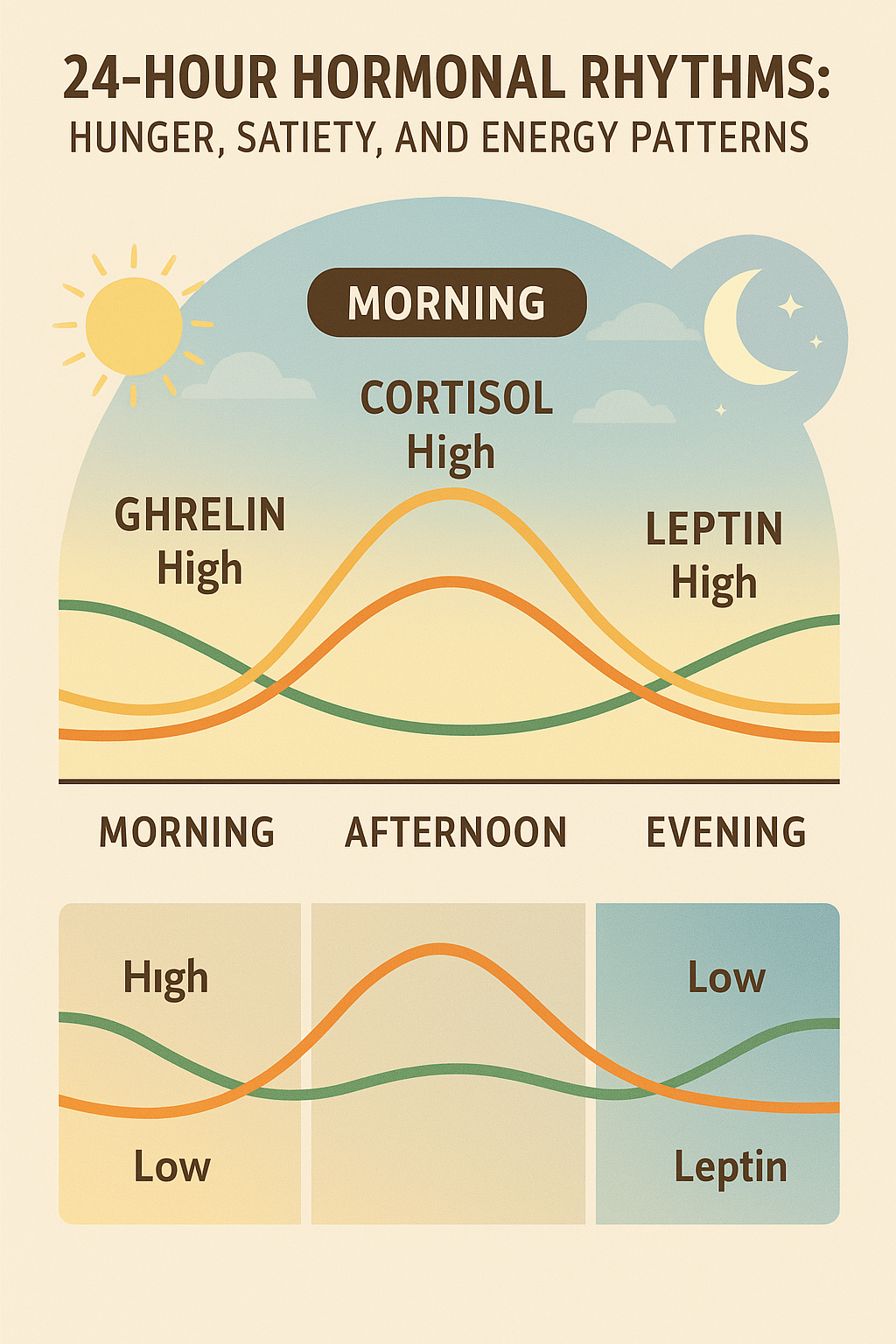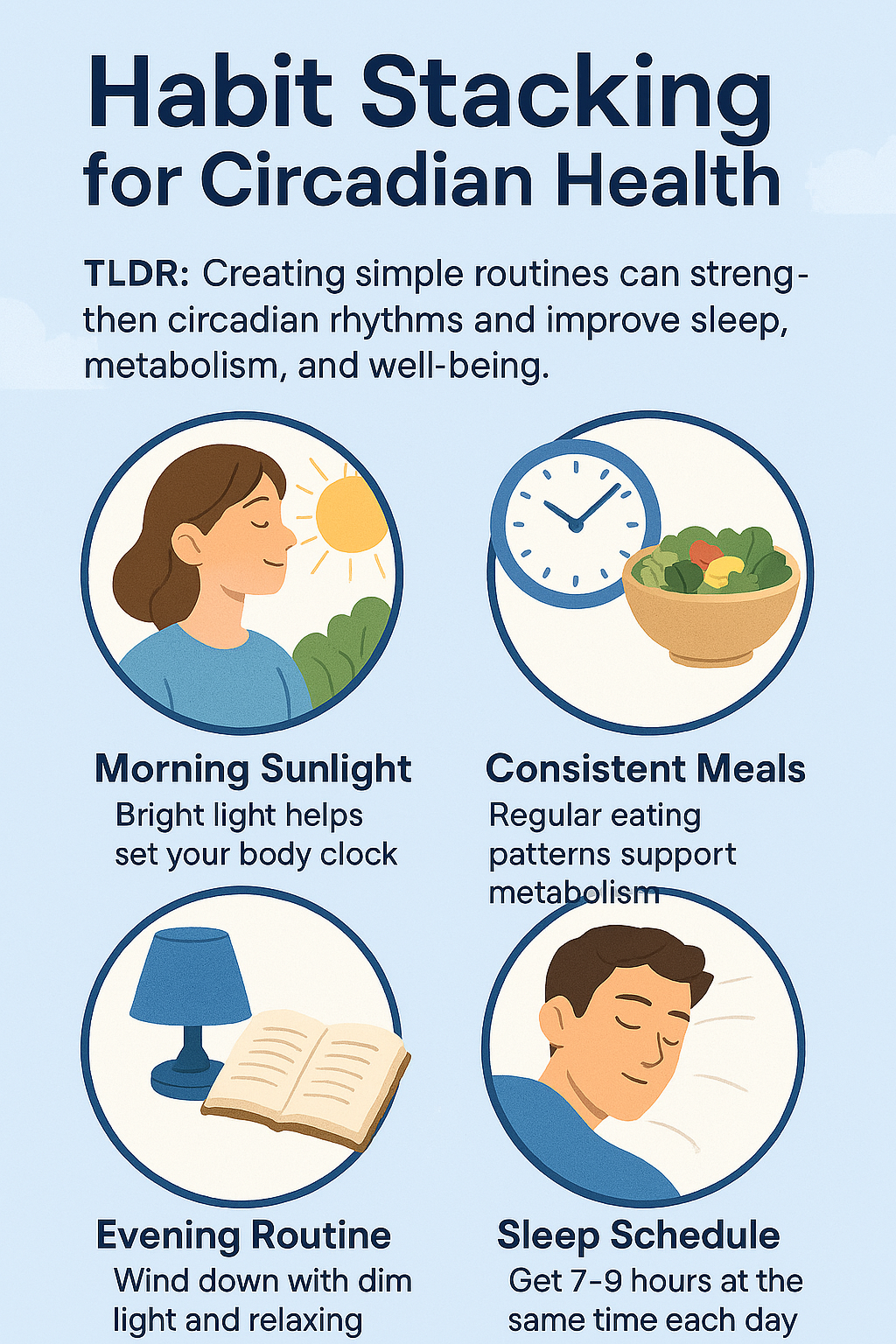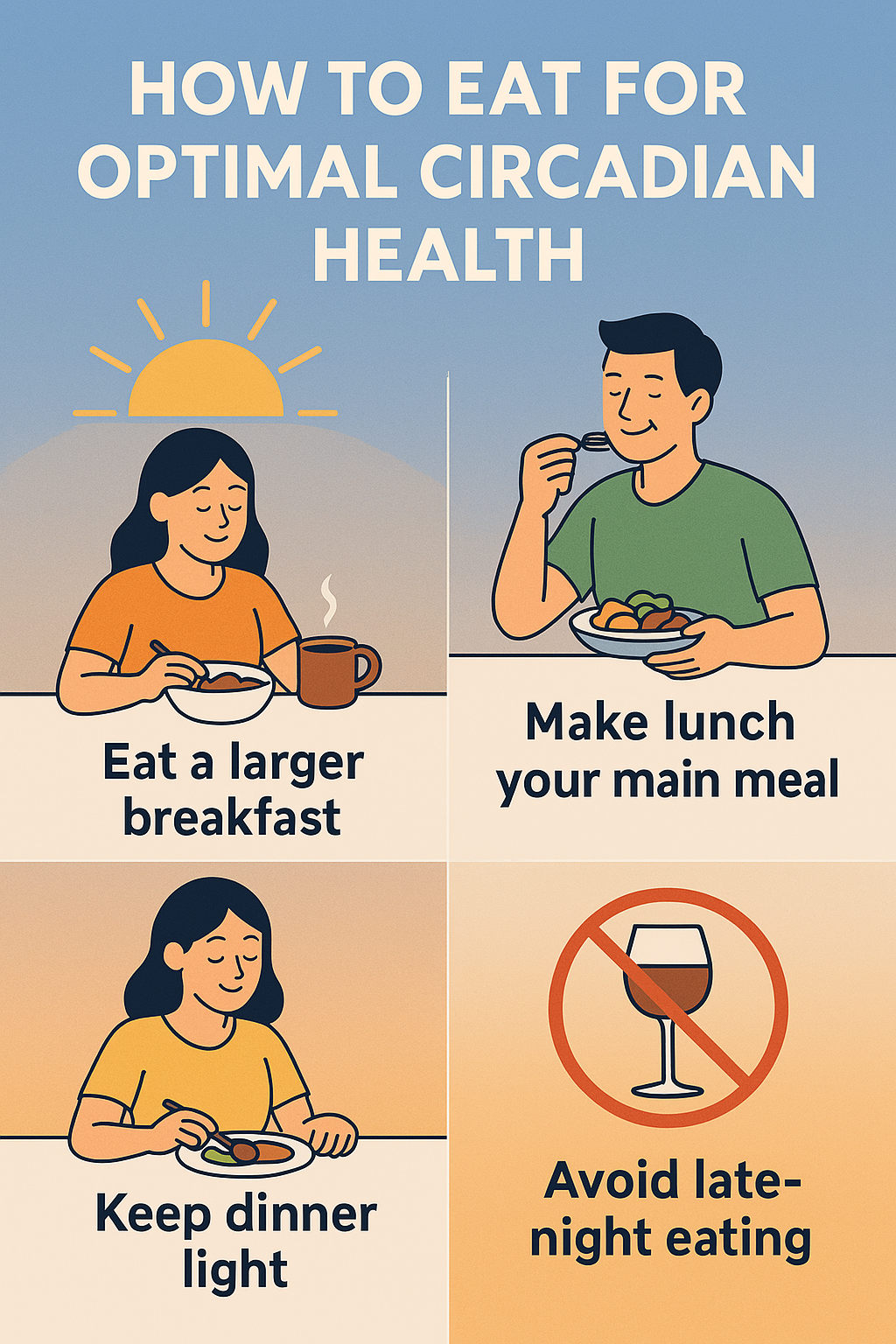✅ TL;DR (3-Line Summary)
- Your hunger isn’t random—it follows a hormonal rhythm driven by ghrelin, leptin, and cortisol.
- Misaligned eating schedules and poor sleep disrupt these hormones, causing cravings, weight gain, and mood instability.
- Eating in sync with your circadian rhythm helps restore hormonal balance, reduce appetite, and improve metabolic health.
🧑⚕️ Expert Dialogue: Dr. Claire (Chronobiologist) & Dr. Evan (Functional Nutritionist)
Dr. Claire: Evan, let’s talk about the real reason people struggle with cravings—hormonal misalignment. You can’t out-willpower your biology.
Dr. Evan: Absolutely. When people eat at the wrong times or sleep poorly, their hunger and satiety hormones go haywire. I see it all the time: ghrelin spikes, leptin plummets, cortisol rises—leading to nonstop snacking and emotional eating.
Dr. Claire: And the frustrating part is that many don’t realize their hunger is circadian, not just psychological. These hormones operate on a clock. Shift that rhythm—and the whole system is affected.
Dr. Evan: That’s why circadian nutrition is so powerful. It’s not about counting calories. It’s about eating on time to regulate hormones.
🔬 Meet Your Three Key Metabolic Hormones
1. Ghrelin – The Hunger Hormone
- Secreted primarily in the stomach
- Tells your brain “It’s time to eat”
- Peaks just before typical meal times (based on your routine)
- Stimulated by: empty stomach, stress, erratic sleep
- Suppressed by: protein-rich meals, good sleep, early eating
2. Leptin – The Satiety Hormone
- Secreted by fat cells (adipose tissue)
- Tells your brain “You’re full”
- Works best in a consistent rhythm
- Disrupted by: high-fat diets, sleep deprivation, late-night eating
- Enhanced by: circadian-aligned meals, fiber, metabolic balance
3. Cortisol – The Rhythm Driver
- A steroid hormone that peaks in the morning
- Helps mobilize energy and alertness
- When chronically elevated (from stress or late eating), it increases ghrelin and suppresses leptin
- Syncs other hormones to the biological clock

⏰ The Hormonal Rhythm of a Healthy Day
| 6–8 AM | High (rising) | Low | Low | Wake up, hydrate, light exposure |
| 8–9 AM | High | Rising | Moderate | Eat protein-rich breakfast |
| 12–1 PM | Moderate | Peaking | Moderate-low | Eat balanced lunch |
| 3–5 PM | Lowering | Slight rise | Increasing | Light snack or herbal tea if needed |
| 6–7 PM | Low | Lower | High | Light dinner, begin fasting window |
| 8–10 PM | Suppressed | Low | Peak | No food, reduce light exposure, sleep prep |
📚 What Happens When Hormones Fall Out of Sync
Dr. Claire: Let’s break down what happens when people eat late, skip breakfast, or snack past 10pm.
- Ghrelin stays elevated = constant hunger
- Leptin signaling weakens = no “I’m full” signal
- Cortisol spikes = fat storage, especially abdominal
- Result? Cravings, mood swings, poor sleep, and weight gain
Dr. Evan: And the gut microbiome suffers too. Nighttime eating alters microbial balance, promoting inflammatory strains that further impair hormone sensitivity.
🔥 Leptin Resistance: The Silent Fatigue Hormone
Leptin resistance occurs when your brain no longer “hears” the fullness signal—even when leptin levels are high.
🚨 Symptoms:
- Constant hunger after meals
- Fatigue despite 8 hours of sleep
- Weight gain, especially around the belly
- Inflammation and insulin resistance
🛠️ What fixes it?
- Eating earlier in the day
- Avoiding processed fats and sugar
- Improving sleep hygiene
- 12–14 hour overnight fasting
- Consistent meal timing
✨ Bonus: High-fiber veggies and omega-3s increase leptin sensitivity.

🍽️ Meal Timing Tips for Hormonal Harmony
| Eat breakfast within 90 mins of waking | Stabilizes cortisol, reduces ghrelin spike |
| Avoid food after 7pm | Boosts melatonin, lowers nighttime insulin |
| Make lunch your largest meal | Leptin boost + better blood sugar stability |
| Include protein & fiber at each meal | Improves satiety, lowers ghrelin |
| Eat meals at the same time daily | Trains circadian hormone rhythm |

🧠 Mind-Body Connection: Hormones and Mood
Dr. Evan: Hormones don’t just affect appetite—they affect mood.
- Low leptin = anxiety, irritability
- High ghrelin = emotional eating, stress cravings
- Disrupted cortisol = poor focus, depressive symptoms
Dr. Claire: That’s why people feel “hangry” or foggy when their meal timing is off. It’s not in their head—it’s in their hormones.
❓ FAQ – Hormones, Hunger & Circadian Nutrition
Q1: Can skipping breakfast cause hormonal imbalance?
Yes. Skipping breakfast increases cortisol and ghrelin, leading to more intense hunger later in the day and worse blood sugar control.
Q2: Why do I feel hungrier at night?
Late-night hunger usually signals misaligned ghrelin rhythm due to poor meal timing or emotional stress.
Q3: How does sleep affect hunger hormones?
One bad night of sleep can increase ghrelin and decrease leptin by up to 20%, leading to more hunger the next day.
Q4: What’s the best meal to balance hormones?
A protein-rich breakfast with healthy fat and fiber is most effective for stabilizing cortisol, ghrelin, and leptin.
Q5: Can I fix leptin resistance?
Yes, with early time-restricted eating, exercise, nutrient-dense meals, and especially consistent circadian habits.
🧬 Is Your Hunger Aligned With Your Hormones?
Take this 10-question survey to discover whether your lifestyle supports healthy ghrelin, leptin, and cortisol rhythms.

🛌 Evening Hormonal Routine to Wind Down
- ⏱️ Stop eating by 6:30–7:00 PM
- 💡 Dim lights and avoid blue light after sunset
- 🧘♀️ Light stretching or breathing exercise
- 🍵 Herbal tea with magnesium or chamomile
- 🛏️ Sleep by 10:00–10:30 PM for cortisol rhythm reset

🧭 Conclusion: Time Your Meals, Tame Your Hormones
You don’t need willpower to conquer cravings.
You need rhythm.
When you eat, sleep, and move in sync with your body clock, your hormones start to work for you, not against you.
✅ Ghrelin calms down.
✅ Leptin speaks clearly.
✅ Cortisol resets.
✅ You feel energized, full, and in control.
So if you’ve been feeling hungry all the time… maybe it’s not your willpower.
Maybe it’s your timing.



